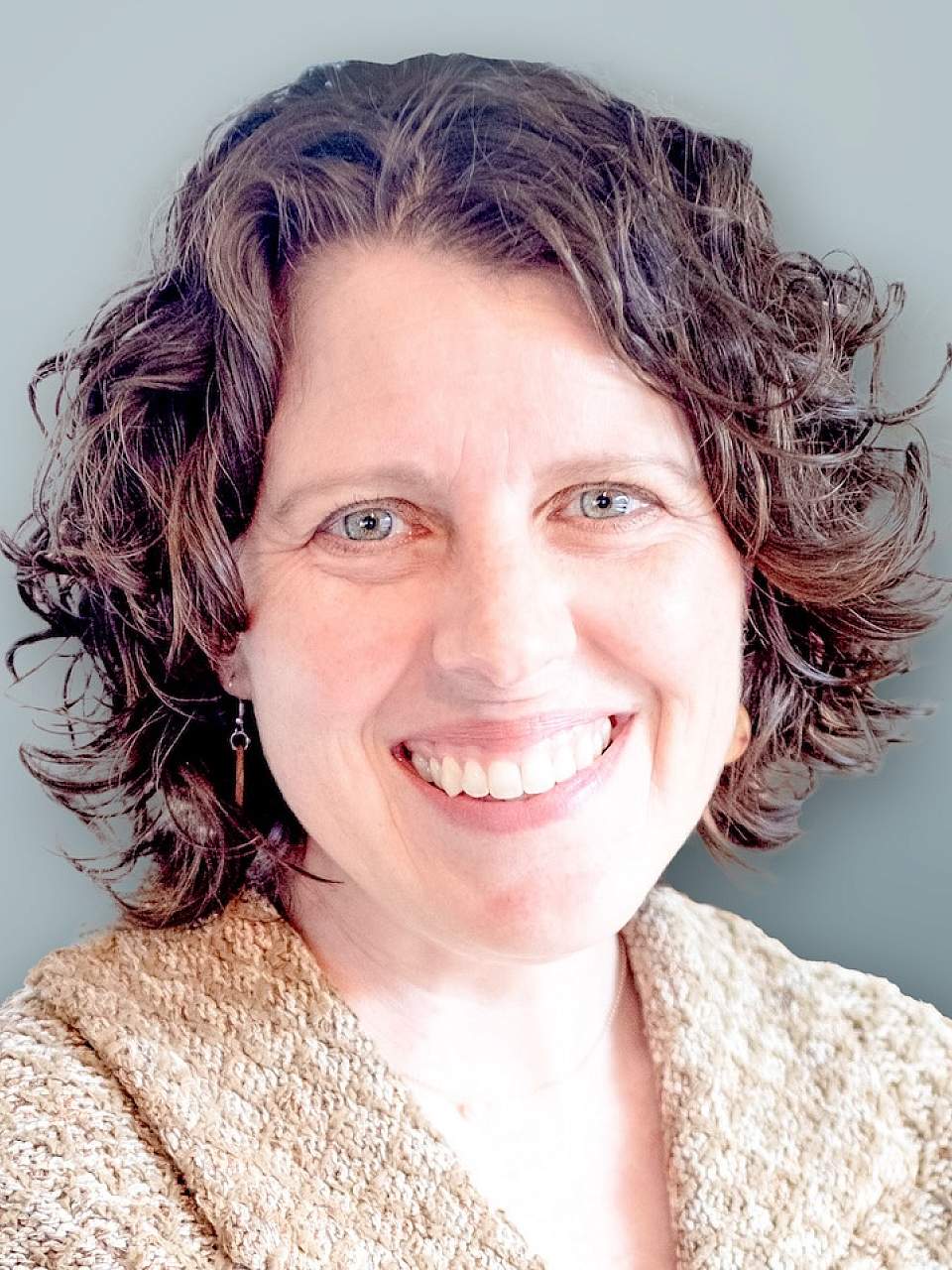Voices of U of U Health
Leader Profile: Katherine Anderson Wants Every Faculty Educator to Know How Much They Matter
I didn’t always know I wanted to be a doctor. In fact, I tried not to be one.
My dad is a surgeon, and I worked in his office as a teenager—filing charts, answering phones, helping with insurance paperwork. It was good work. But in college I wanted to try something different. I explored English, chemistry, and even education.
Despite my interests, I was always drawn to serving others and connecting with people in their time of need. It ultimately led me back to medicine. Volunteering in emergency rooms, working with patients—it was where I felt I belonged.
In time, I decided medicine was the right path for me and I attended medical school at the University of Washington. I arrived thinking I’d become a surgeon. But as it does, life shifted. My husband and I decided two surgeons in the same household might not leave room for much else. So I chose to evolve along a different path—one that led me to internal medicine and, surprising to me, to geriatrics.
I say “surprising” because geriatrics wasn’t something I had considered. I had the opportunity to care for a group of older women who I saw regularly during my residency training clinic. I kept seeing that their needs were often brushed off as “just aging.” I knew there was more we could do—more we should do. Their resilience and their complex humanity opened my eyes to a field I had overlooked. I was hooked.
That experience taught me an important lesson: We don’t always know what we don’t know. It also reminded me how much education, both giving and receiving, matters in medicine.

Why Education Matters
When I stayed on at the University of Utah for fellowship training, I saw a chance to blend my passion for medicine with my early interest in education. I pursued an advanced geriatrics fellowship with a focus on education and faculty development. I’ve had incredible mentors and teachers in my own training, but I also saw that not everyone gets that experience.
The truth is, physicians are expected to teach, but we aren’t always taught how. Education is a skill like any other—one that can be learned, practiced, and improved. That’s why I’ve devoted much of my career to supporting educators.
Over the past number of years, I’ve seen the Spencer Fox Eccles School of Medicine at the University of Utah make real progress in how we support faculty educators. From creating the core educator program to establishing vice chairs of education in every department, we’re seeing a renewed commitment to faculty development opportunities. These programs—and others still taking shape—will make sure we have a steady pipeline of skilled, inspired educators in the future.
A New Division, A Shared Mission
Now, as the inaugural head of the Division of Medical Education, I’m excited to keep building on that momentum.
The division was created to give our adjunct preceptors—clinicians who teach our students throughout the Mountain West—a true academic home. These incredible physicians serve students all across Utah and southern Idaho. They offer real-world experience and mentorship, but until now, they haven’t had a centralized way to connect, grow, and feel like part of the University of Utah family.
We launched just a year ago, and today we have 85 adjunct faculty members in the division. That growth is both humbling and energizing. Our goal isn’t to take educators away from their existing departments or specialties—it’s to add value, build collaboration, and help every faculty educator thrive in their role.
What We’re Building
In our first year, much of our work has been about building relationships. We’ve partnered with programs to support educators and students in a variety of settings, including the:
We’re working closely with curriculum leaders to align faculty development efforts and ensure that students have consistent, high-quality learning experiences, where ever they choose to train.
Preceptors are busy, and many are in private practice. They teach because they care and want to “give back”. But they often don’t have protected time or resources to develop their teaching skills or attend workshops. One of our biggest challenges—and opportunities—is to create accessible, flexible faculty development tools that meet them where they are.
When preceptors feel supported and equipped, everyone benefits. Students get better experiences, clinics benefit from fresh energy and perspective, and communities build stronger ties with academic medicine.

Leading with Relationships
My leadership approach is rooted in relationships. I believe that strong teams grow with trust, and that collaboration creates better outcomes—for learners, educators, and patients alike. I want every educator in our network to feel like they matter, because they do. Whether they’re mentoring a student for two weeks or 11 months, they’re shaping the future of health care.
That’s the legacy I hope to leave. Not just a new division, but a culture where education is valued, where teachers are supported, and where learners are inspired.
What Comes Next
Looking ahead, I hope we can elevate medical education at the University of Utah to national prominence, not for the sake of recognition but because our educators and students deserve it. I want preceptors to feel confident and equipped, and I want students to look back and say, “That was a transformative experience.”
We’ll keep growing. We’ll keep listening. And together, we’ll keep building something meaningful.
If you're a clinician interested in teaching, you can learn more about becoming a preceptor or joining the Division of Medical Education here.
